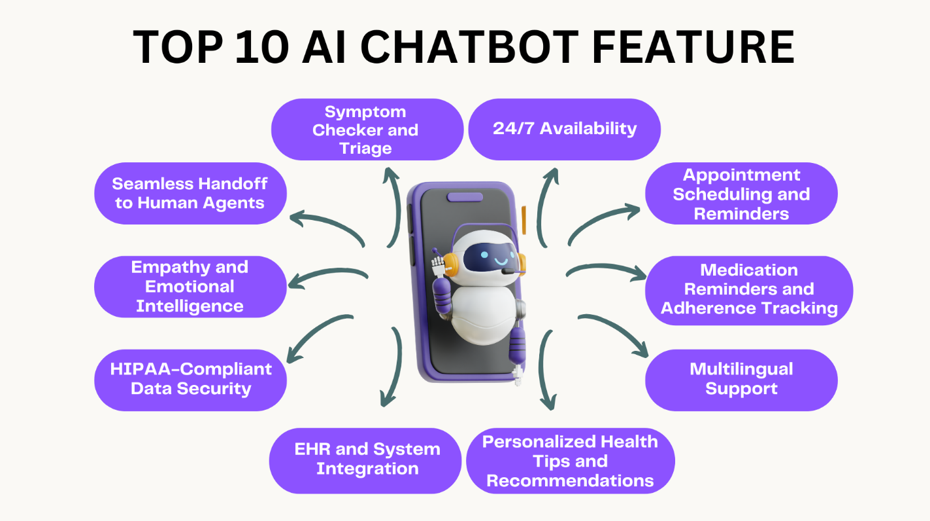In the evolving landscape of personalized medicine, pharmacogenomics the study of how an individual’s genetic makeup influences their response to medications—plays a crucial role. However, analyzing large-scale genetic data and deriving actionable insights from it poses significant challenges. With the introduction of Artificial Intelligence (AI), pharmacogenomics is advancing rapidly, paving the way for improved drug efficacy, safety, and personalized treatments. This article explores the future of pharmacogenomics in the AI era, where intelligent algorithms will revolutionize how medications are developed and prescribed.
Why AI is Essential in Pharmacogenomics
The pharmacogenomics field involves analyzing large-scale data from sources such as genomic studies, clinical trials, and electronic health records (EHRs). Traditional analytical methods struggle to interpret such massive datasets. AI, particularly machine learning (ML) and deep learning, can:
- Identify patterns and predict gene-drug interactions.
- Process unstructured data from scientific literature and EHRs.
- Provide actionable insights faster than conventional statistical tools.
-
The Role of AI in Pharmacogenomics: An Overview
AI serves as a catalyst for pharmacogenomics by making it feasible to analyze complex genetic and clinical datasets quickly and accurately. Machine learning algorithms and deep learning models can uncover hidden patterns in data, providing insights into drug-gene interactions, potential side effects, and optimal dosing strategies. This synergy between AI and pharmacogenomics is transforming the way drugs are discovered, tested, and tailored to individual patients Future of Pharmacogenomics .
-
AI-Driven Pharmacogenomics: Enhancing Drug Efficacy
2.1 Personalized Drug Therapies
- AI can predict the most effective medications and dosages based on a patient’s genetic profile, increasing drug efficacy.
- Example: AI algorithms can analyze variations in liver enzymes (like CYP450) to predict how a patient will metabolize antidepressants or anticoagulants.
2.2 Precision Medicine for Complex Diseases
- AI models can recommend targeted therapies for conditions like cancer by analyzing a tumor’s genetic mutations.
- Example: AI-powered pharmacogenomics helps oncologists select the most effective chemotherapy drugs for individual patients, reducing trial-and-error approaches.
2.3 Faster Drug Development
- By predicting which genetic variations impact drug response, AI can accelerate the design of new therapies tailored to specific populations.
- Example: AI identified new uses for existing medications during the COVID-19 pandemic by analyzing drug interactions with genetic markers linked to viral response.
-
AI’s Contribution to Drug Safety in Pharmacogenomics
3.1 Predicting Adverse Drug Reactions (ADRs)
- AI algorithms analyze genetic data to predict a patient’s risk for adverse drug reactions. This helps healthcare providers avoid prescribing drugs likely to cause toxic side effects.
- Example: AI models can predict hypersensitivity to antibiotics or chemotherapy drugs based on genetic mutations.
3.2 Optimizing Dosage for Safety
- AI ensures that drugs are administered in precise doses by analyzing individual metabolic rates.
- Example: Patients with slow metabolism may require lower doses of blood thinners like warfarin to prevent bleeding risks.
3.3 Reducing Medication Errors
- Integrating AI-driven pharmacogenomics with electronic health records (EHRs) allows clinicians to receive alerts about potential drug-gene interactions in real time, reducing medication errors Traditional EHRs VS AI-powered EHR systems.
-
Future Trends in AI-Enhanced Pharmacogenomics
4.1 Multi-Omics Integration
- Future AI systems will integrate multi-omics data (genomics, proteomics, metabolomics) to provide a more comprehensive understanding of drug responses.
4.2 Real-Time Drug Recommendations
- AI tools embedded in healthcare platforms will offer real-time insights into optimal drugs and dosages during patient consultations by analyzing both genetic data and clinical history.
4.3 Quantum Computing in Genomic Analysis
- Quantum computing will enhance the capabilities of AI models, allowing them to process even larger datasets and predict complex drug-gene interactions more accurately.
4.4 AI-Enabled Drug Repurposing
- AI will continue to discover new therapeutic applications for existing drugs by identifying previously unknown genetic markers.
-
Challenges in Implementing AI in Pharmacogenomics
Despite its potential, AI-driven pharmacogenomics faces several challenges:
-
Data Privacy and Security:
Handling genetic data raises concerns about patient privacy and the potential misuse of sensitive information.
-
Bias in Data:
AI algorithms may reflect biases in datasets, leading to inequities in healthcare.
-
Regulatory Barriers:
Regulatory agencies need to establish frameworks to validate AI-driven pharmacogenomic insights.
-
Integration with Clinical Workflows:
Healthcare providers need to adapt their workflows to incorporate AI tools seamlessly.
-
Future Trends in AI-Driven Pharmacogenomics
-
Quantum Computing:
The integration of quantum computing will allow AI systems to process even larger datasets and uncover more complex drug-gene interactions.
-
Real-Time Pharmacogenomic Insights:
AI-powered tools integrated with EHRs will offer real-time drug recommendations based on patient genetic data Future of Pharmacogenomics.
-
AI and Multi-Omics Data:
AI will combine pharmacogenomic data with other “omics” data (e.g., proteomics and metabolomics) to develop more holistic treatment plans.
Benefits of AI in Pharmacogenomics
-
Faster Drug Development:
AI accelerates the discovery of new therapies by rapidly processing genomic and clinical data.
-
Cost-Effectiveness:
Identifying optimal drug candidates and personalized dosages reduces trial-and-error prescriptions and healthcare costs.
-
Improved Patient Outcomes:
Tailored treatments based on pharmacogenomic insights lead to better patient outcomes and fewer adverse events Future of Pharmacogenomics.
-
Enhanced Predictive Power:
AI models provide early warnings for potential adverse effects, enabling proactive intervention.
Applications of AI in Pharmacogenomics
3.1 Predicting Drug-Gene Interactions
- AI models can predict how specific genetic variants will influence drug metabolism and efficacy.
- Example: Algorithms help identify which patients might respond poorly to certain medications, such as anticoagulants or antidepressants, based on genetic differences.
3.2 Optimizing Drug Dosage
- AI systems analyze genomic data to recommend the most effective dosage for individual patients.
- Example: In chemotherapy, AI models ensure that dosages are optimized to reduce side effects while maintaining effectiveness.
3.3 Identifying Adverse Drug Reactions (ADRs)
- AI can predict the likelihood of adverse reactions by analyzing patient-specific genetic data and historical data.
- Example: Pharmacogenomic data combined with AI can flag patients at risk for severe side effects from opioids or statins.
3.4 Drug Repurposing
- AI mines existing data to discover new applications for existing drugs by identifying genetic markers shared across diseases.
- Example: AI tools have identified potential cancer treatments among drugs originally developed for other diseases.
3.5 Personalized Medicine and Precision Therapies
- AI enables personalized treatment plans by considering an individual’s genetics alongside other factors (e.g., age, lifestyle, and medical history).
- Example: Precision oncology uses AI to recommend targeted therapies for cancer patients based on their tumor’s genetic profile Future of Pharmacogenomics.
Conclusion
The future of pharmacogenomics lies in the integration of AI technologies that unlock the full potential of personalized medicine. AI will enable healthcare providers to prescribe the right medication, at the right dose, for the right patient, thereby imprError! Hyperlink reference not valid.oving efficacy and reducing adverse events. As pharmacogenomics and AI evolve together, we can expect faster drug development, more precise treatments, and safer healthcare practices. While challenges remain, ongoing advancements in AI will continue to drive innovative solutions, transforming the future of medicine into one that is truly personalized, safe, and effective for all.
The combination of AI and pharmacogenomics is more than a technological trend—it represents the next frontier in healthcare, bringing us closer to a world where treatments are tailored to each patient’s unique genetic blueprint.









